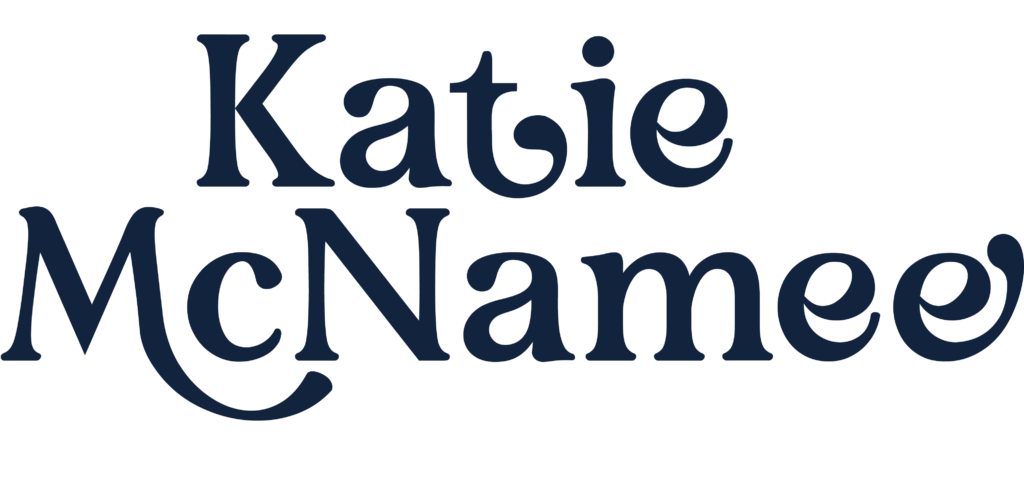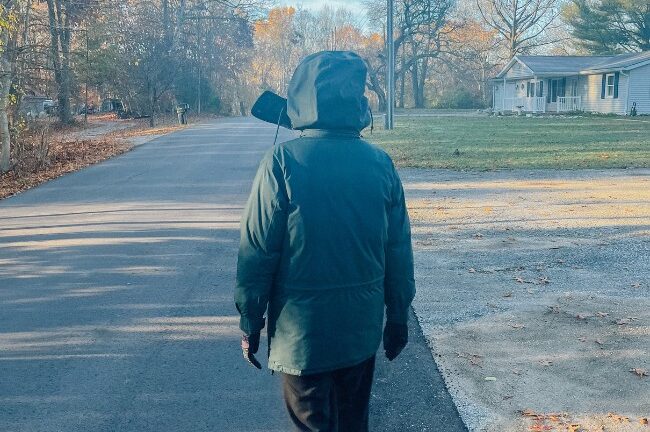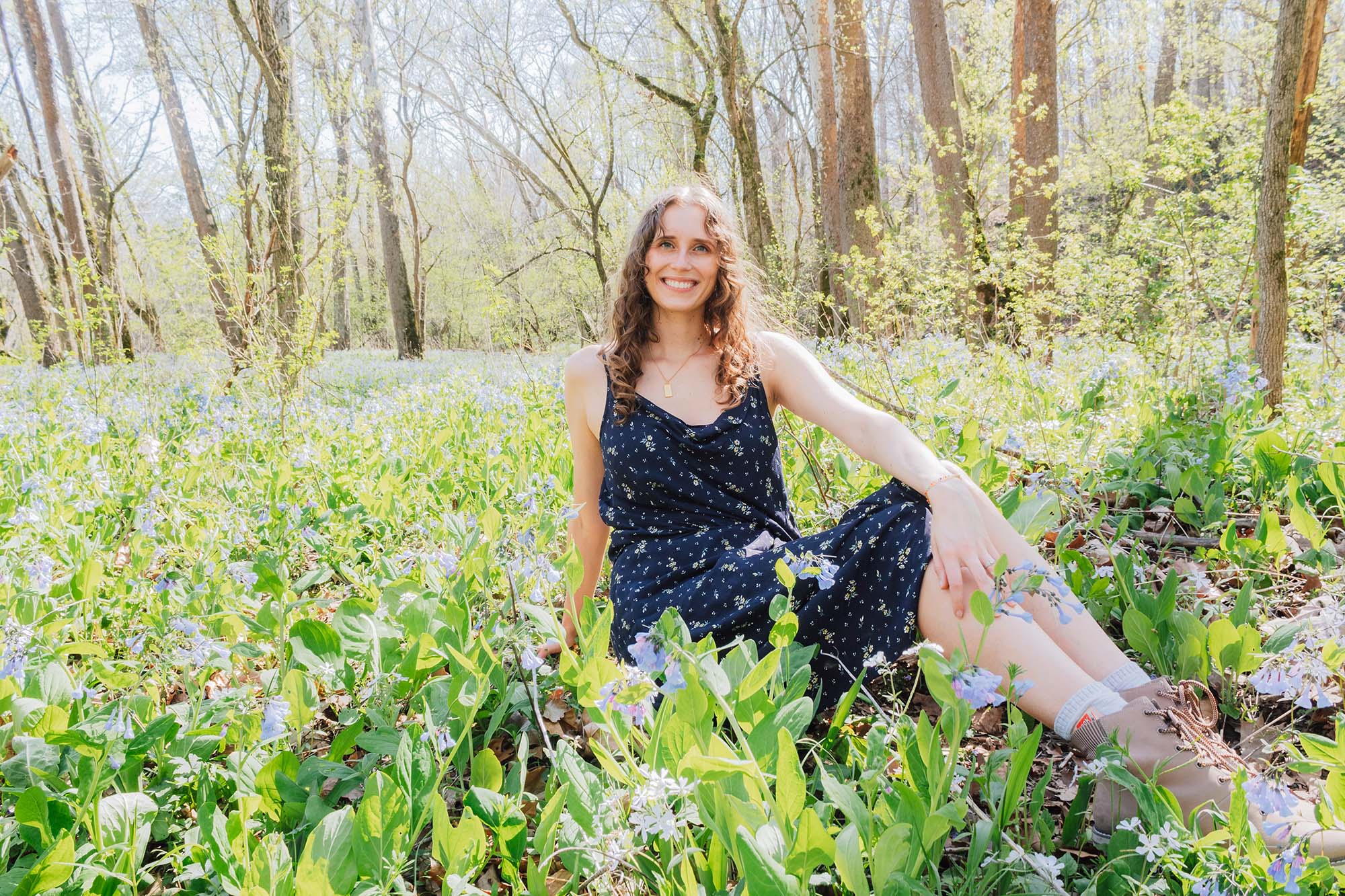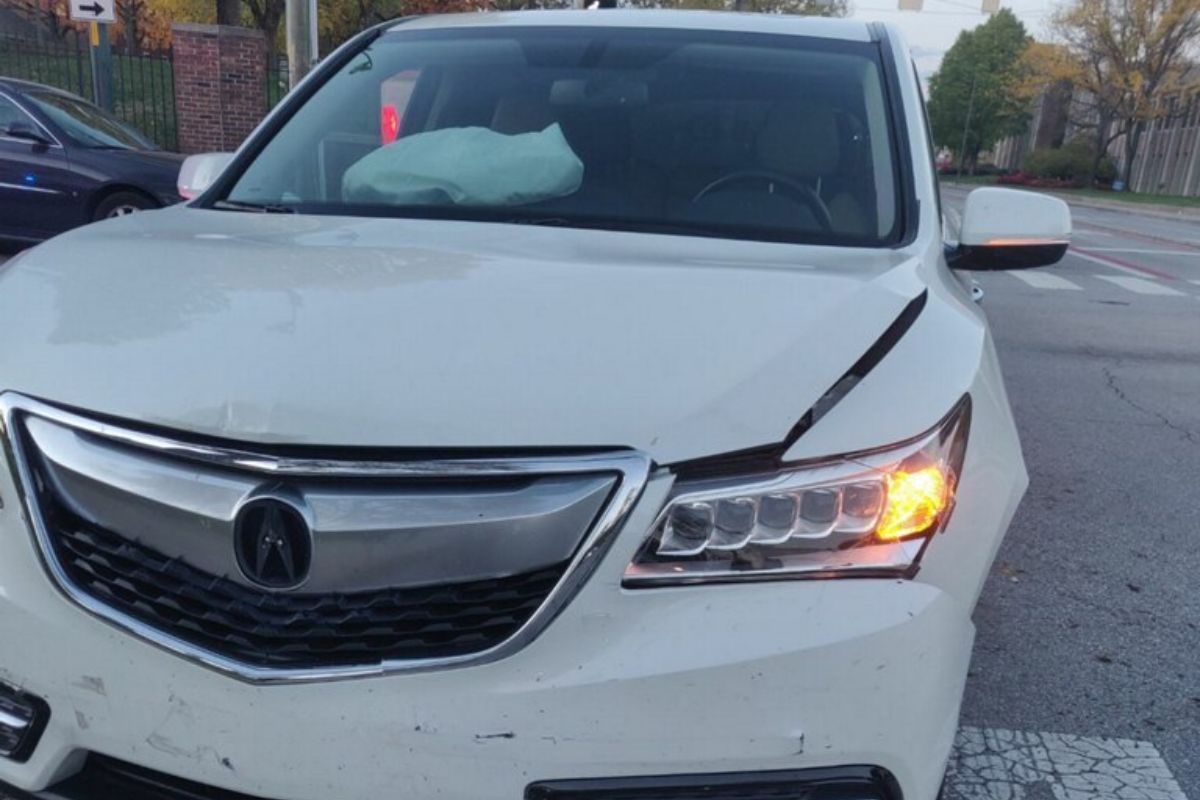This story discusses the realities of living with chronic illness, depression, and anxiety. If you or someone you know needs immediate support, please know there are crisis lines available via phone, chat, or text.
I’m not sure if life imitates art or if art imitates life, but I had an experience this year that made me wonder if I wrote a retreat experience into existence.
For context, I started writing a book in 2023 when I was rooted in wonderful mental health and spiritually strong. Sure, my physical health fluctuated, but for the most part, my body felt pretty darn good.
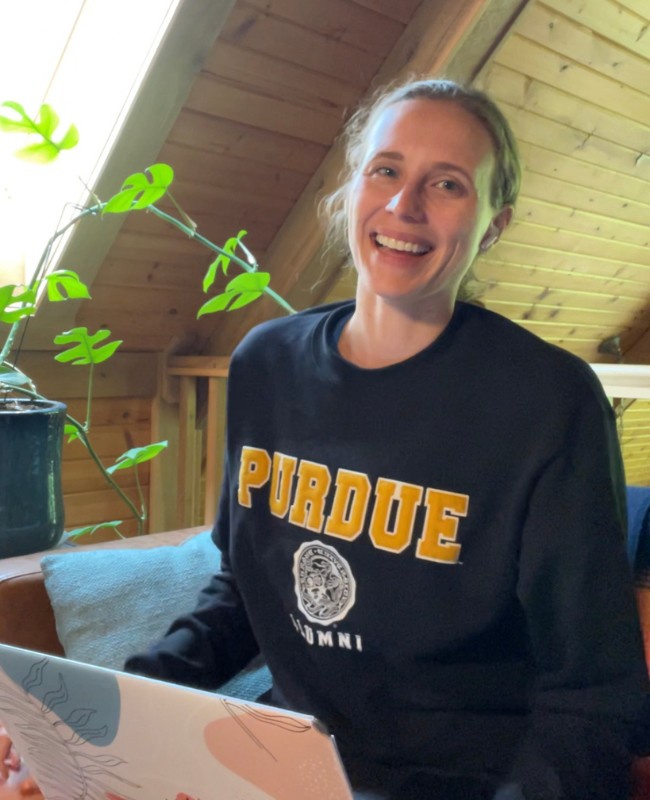
The novel I created during that time was a burst of love and joy and healing: a romcom about a burned-out and chronically ill marketer who swears she’s fine as long as she stays out of the spotlight after a bad, media-covered breakup. But she’s forced to reconsider what fine means to her and if she can survive the public eye when she meets a charming and challenging indie rockstar at an exclusive wellness retreat.
My agent and I are still working on the exact pitch, but you (hopefully) get a sense of it: an exploration of mental health and denying your feelings. Finding your voice and feeling like you’re enough. Messy but meaningful healing.
Now, I very much have my dream romance locked down (thank you, Patrick ♥️), but in September of 2024, I found myself at a wellness retreat where I realized I was very much the sick, burned-out marketer.
And, like my main character, I was unsure of how to get better—and make it last.
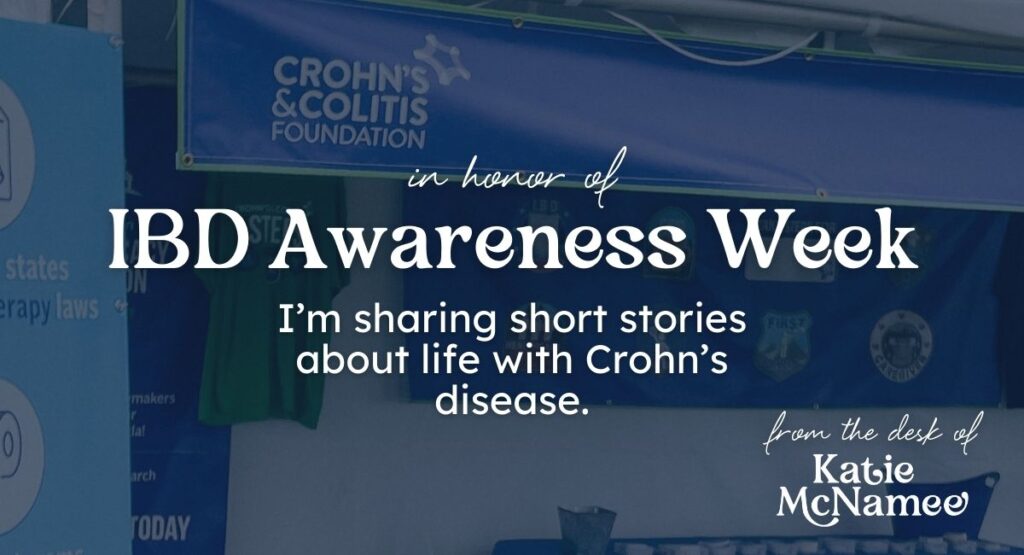
If you’d like to sign up to join my newsletter (featuring topics on writing, chronic illness and mental health, creative entrepreneurship, and more), click here.
And for the rest of the story—keep reading.
A Year of Prolonged Sickness
One thing about my main character is that she is very much in denial about her feelings at the start, but I went into my retreat knowing I was sick and tired of being sick.
I have spent the majority of 2024 unwell, and lately, my health has declined further. The medicine I take for my Crohn’s disease suppresses my immune system, leaving me at risk for infections. And that could potentially be one reason why I’ve spent 2024 fighting chronic sinusitis that refuses to go away. It’s left me with a semi-permanent headache, clogged sinuses, facial pain, fatigue, and body aches.
It also feels like instead of just my sinuses being in this inflamed state, the inflammation has carried into my body, making me uncertain if I’m also experiencing Crohn’s symptoms.
This prolonged sickness has made managing my relationships, my workload, and my writing (basically life) hard and has exacerbated my mental health health issues.

A quick, necessary interlude.
I also want to say I have also experienced a whole lot of good this year. I’ve had bright spots of health I deeply treasured. Fantastic work opportunities. I signed with my agent and went on submission! Traveled to Scotland and petted Highlands Cows. Treasured time with friends and family. So much more and so much good.
But both the hard times and the good times can co-exist.
And without a doubt, keeping my mental health afloat has been difficult during this prolonged sickness.
And, even when I’m well, I’ve had to work through anxiety and depression (more on that below).
So by the time I attended that September retreat, I was unwell and doing my best to counter my depression. I went into the retreat hoping for a journey into the wilderness with friends, old and new. It turns out I got exactly that, but through the introspective work there, I realized I also had a lot of tears to let out (that I could have sworn I had cried already).
And I had some truths to remember, too.
My Super-Abbreviated Mental Health Journey
I’ve experienced depression and anxiety for a long time. Sometimes, it’s tied to my physical health. Sometimes, it isn’t.
I first went to traditional therapy in 2018 after the weight of my mental health had grown too heavy for me to feel like I could work through it on my own. Thankfully, the people in my life supported me in starting therapy, and that first year gave me the tools and techniques to begin addressing my depression and anxiety.
Since then, I’ve been in and out of therapy and life coaching, worked to craft a life and career that fulfills me and supports my mental and physical health, cultivated my spirituality, and found tools and a supportive community to sustain me—and to give to.
I can say, so loudly and truly, that this inner work has helped me find peace and improve the quality of my life. And it hasn’t all been a slog either; I have experienced such joy through doing this work.

But I’m still not where I had hoped to be by now—either mentally or physically.
If anything, this year has reinforced to me how tricky it can be to navigate the link between my mental and physical health.
There’s the gut-brain connection I’ve started to explore more. But there’s also the fact that when you’re sick, especially during a Crohn’s flare or prolonged chronic illness, it can be hard to know how your mental health is either impacting—or impacted by—your physical health.
The Overlap Between Physical and Mental Health
To start, there’s a significant overlap between the symptoms of Crohn’s disease and the symptoms of depression including fatigue, lack of energy, or feeling slowed down, changes in appetite or unplanned weight changes, physical aches or pains, headaches, cramps, or digestive problems.
I found these overlaps by looking at the Crohn’s disease symptoms on the Crohn’s and Colitis Foundation’s website and depression symptoms according to the National Institute for Mental Health.
I have also experienced them and how tricky they can be to unravel.
For me, it’s not that I feel like one issue always causes the other, but that it can be difficult to understand the support I need for my depression when I’m physically exhausted, inflamed, and hurting. Plus, throw anxiety into the mix and the fact that stress can lead to Crohn’s flares, and you can see how tricky this mind-body connection is.
And it’s not just me experiencing this. Data shows others with IBD are navigating this intersection.
Recent research found a high prevalence of symptoms of anxiety and depression in patients with Inflammatory Bowel Disease, which is the umbrella term for Crohn’s & colitis. Up to a third of patients overall were affected by anxiety symptoms, and a quarter were affected by depression symptoms. These numbers increased in patients with active IBD: half met the criteria for anxiety symptoms and a third met the criteria for depression symptoms.
Retreat Reminders

The time I spent at the September retreat reminded me of a lot of things.
How I have been through—and survived—these cycles of difficult mental health and physical health issues before.
How important it is to be in spaces where I can express my feelings in a way where I feel seen, safe, and heard.
How grateful I am to have a community supporting me, from my husband to my family to my friends and beyond.
How life can be a hard and beautiful and complicated and funny thing.
I mean, hey, sometimes you can even be left wondering if you wrote an experience into existence.
I Still Don’t Have Answers
Even after going through that wonderful retreat and taking November to ease back from work to prioritize my health, I still don’t have answers on how to “get better” and make it last. If anything, my health is worse right now (which is genuinely somewhat stunning).
But that doesn’t mean I’m giving up, even though I feel like I’m flat on the floor. I’m navigating this intersection between my mental and physical health with as much grace and ease as I can give myself, while still acknowledging how much this sickness has depleted me and left me hurting. Exhausted. Numb.
Because even with a few thousand words, these hard times can be tricky for me to capture.
So What Do I Do?
Lately, I’ve been thinking about how nice it would be if there were instructions (I’m talking a detailed daily schedule with bullet points and checkmarks) that we could all follow to heal and to feel our best.
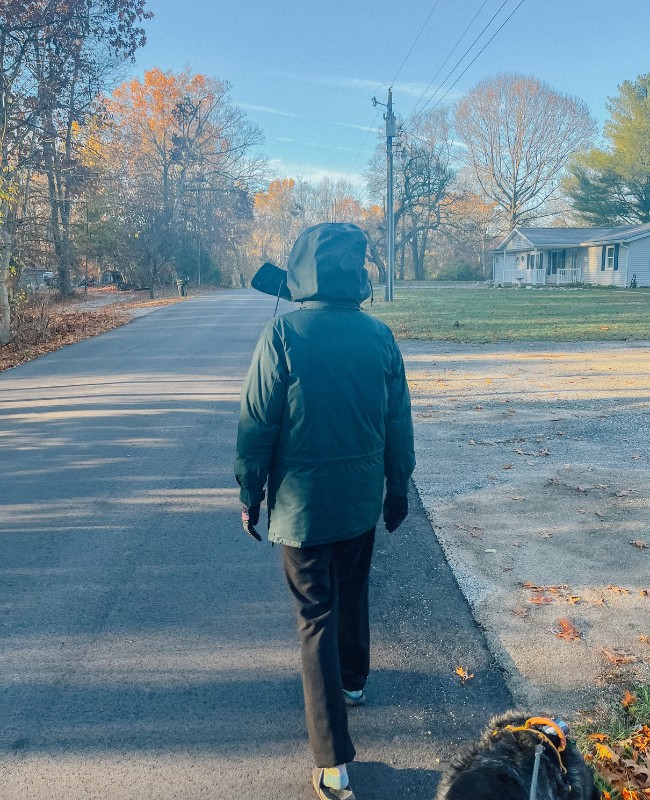
And there certainly are best practices and things we can do, but I believe that everyone’s journey with their chronic illness and/or mental health is unique. Navigating this intersection is challenging.
From my experience, almost any person or professional you talk to might have a different idea of what can help with this.
Sometimes, you’ll find overlap between recommendations; sometimes, you won’t.
Sometimes, these things work. Sometimes, they don’t.
Often, they take time.
Which I know doesn’t sound helpful, but what I have realized through my experiences is that it’s important for me to identify the help and support I need and take action where I can.
Which is what I’m doing now.
Because I’m not giving up hope.
Even when my thoughts try to convince me it’s hopeless, I know the truth.
There’s no one-size-fits-all answer, and what worked for me before, might not be what’s going to help me now. But I will find a way into better health, and just because I’ve been through these cycles before, doesn’t mean I have to repeat them forever.
I am leaving myself open to the possibility of better things ahead.
And it might take me time to heal from this sickness. It might be a bumpy road.
Or things could change wonderfully for the better tomorrow.
But I’ll keep doing what I can.
And I won’t do it alone.
We All Need Support
If you can relate to what I’m discussing here, I hope you reach out if you feel like you need support.
To your loved ones. To professionals. To a helpline.
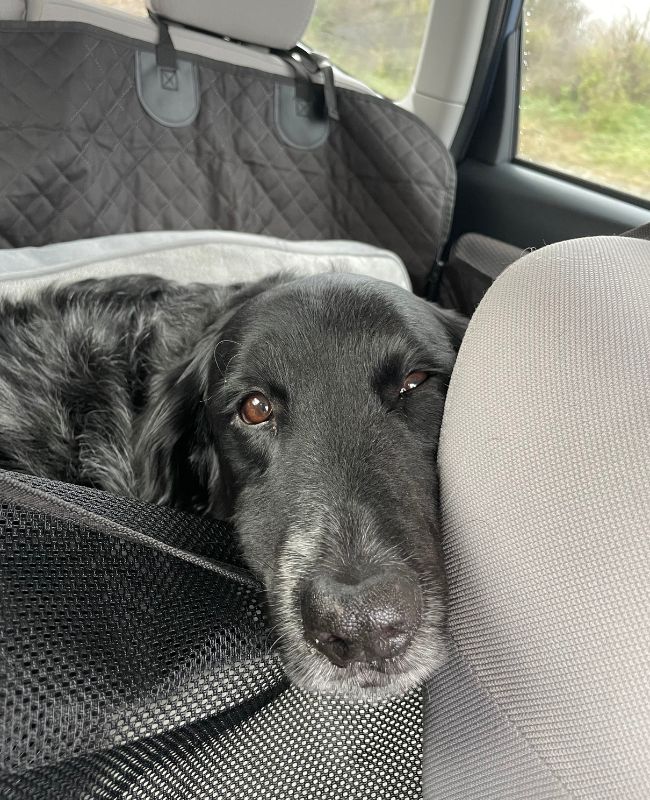
Find the support that serves you where you are.
I’m working on doing this, and I am so grateful for the people who show up for me when I need it.
Also, I want to mention that you don’t have to be in a pit or sick to get help (it can be great to set up support systems ahead of difficulties!), but if you are in a hard place, I know how especially difficult it can be to do this when you’re hurting.
But please do it anyway.
Because if you can’t tell, I’m writing this today for you and me both.
And I want a world where both you and I can feel, maybe not even like our best selves, but like we’re living with a body and mind at peace.
And maybe we’ll find our best selves along the way.
Taking Small-Big Steps
Depending on your needs, I’ve pulled together some resources that might be helpful for you on your journey.
Throughout my life, I have personally found therapy, support groups, writing, a mindful diet, doable exercise (like daily walks outside or on my mini desk treadmill), and journaling to help me both during these periods and when I’m well.
Below is such a small list of ideas to help with what can feel like all-consuming issues, but sometimes, one small step toward getting help or feeling better can be the biggest step of all.
So here are some small-big steps you can take today.
Find an IBD Support Group. Or find a support group that fits your needs.
Join the Crohn’s & Colitis Foundation’s Online IBD Community — or participate in other online communities. My writing community has also been wonderful for me.
Find a Therapist with Psychology Today. I’ve found a few therapists through here! And if you don’t find someone who is a good fit on your first try, it can be worth it to try again.
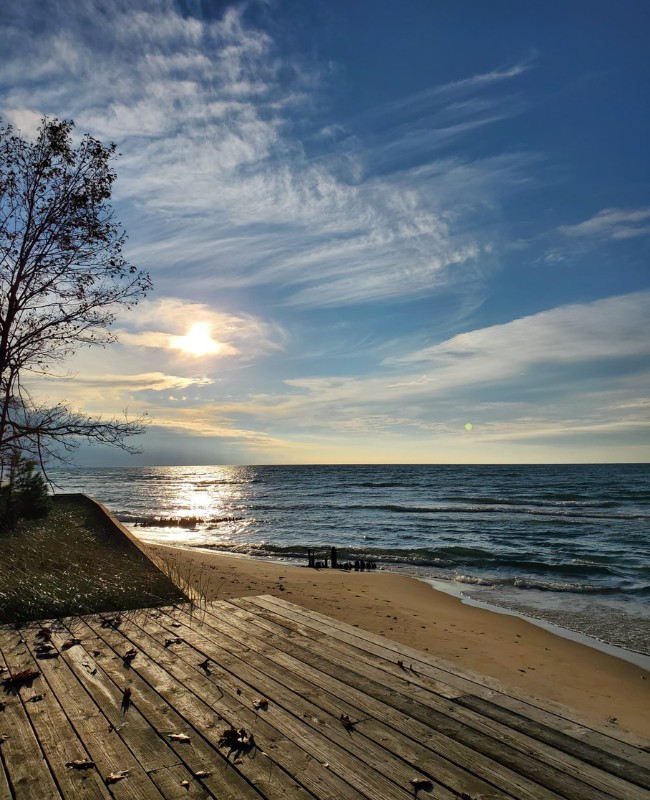
Curate Your Social Media Feeds. Block anything bringing you stress on your social media feeds, and find people and organizations that fill your cup. I have also found limiting my screen time can help with my anxiety, so there’s an option, too.
Find a Journaling or Gratitude Practice That Works for You. The Artist’s Way inspired me to start a daily journaling practice (before this, journaling never quite stuck) that has been immensely helpful.
Advocate for Your Needs. Doing this can be incredibly difficult, but when you need support—or space, communicate your needs and find the people who are willing to support you in that.
Spend Time in Nature. People say nature is healing, and I believe it to be true. Fresh air and time outside are immensely helpful to me.
And also, if you’re doing well and you haven’t experienced these kinds of issues, I really appreciate you taking the time to explore this intersection between physical and mental health with me today.
Continuing On
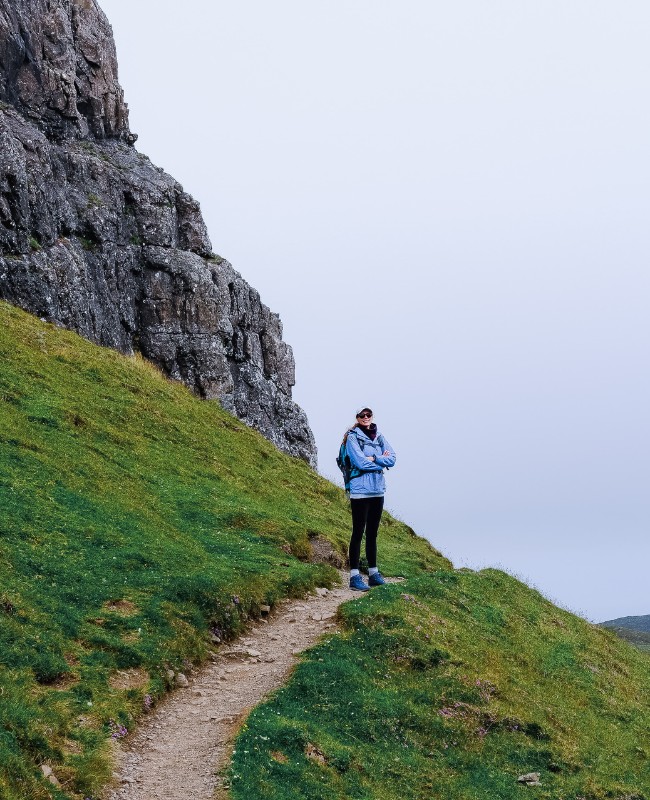
I’m not quite sure how to end this. I feel like the other stories wrap up much neater and shinier, like my romcom’s ending. Meanwhile, I’m still navigating this period of sickness and depression.
So, I don’t have a perfect bow to wrap around these words I’m sharing with you. Just the ribbon I’m knotting and unknotting and grateful to feel on my fingertips because it means I am here, and while I’m here, I have the ability to learn and grow and figure it out.
Right alongside you.
